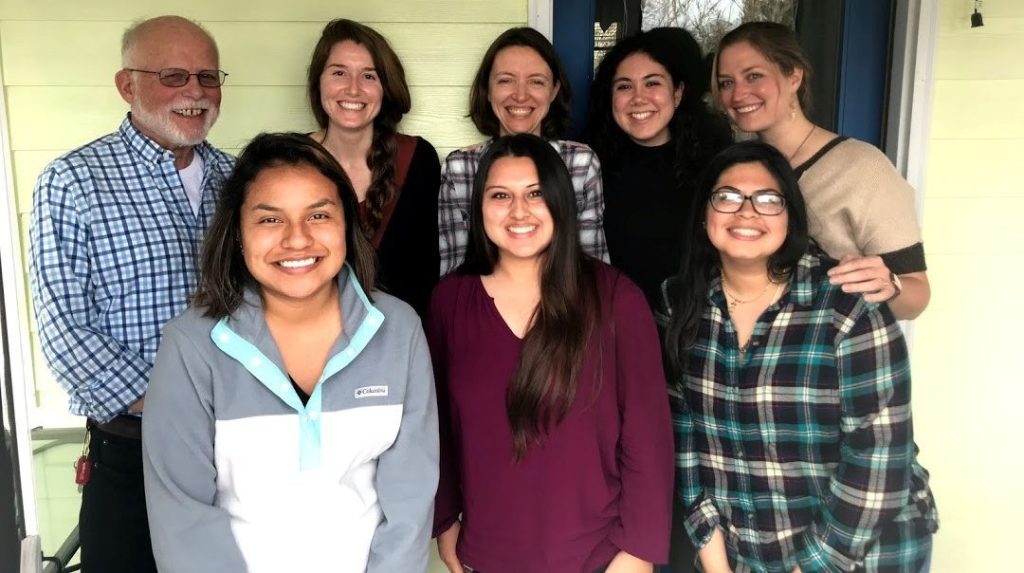Ayudantes Escolares Online Team Spotlight: Marisa Carlton

Marisa Carlton, who just graduated from UNC-Chapel Hill, played a large role in helping launch the Institute of the Study of the America’s pilot program, Ayudantes Escolares Online (K-5 Online Tutors). With a B.A. in Global Studies (concentration in International Politics, focusing in Latin America) and a double major in Communications (concentration in Interpersonal and Organizational Communication), along with a minor in Social and Economic Justice, Marisa had the perfect experience to bring to the team. She had previously worked with Hannah Gill as a student in her oral history courses, including “Heritage and Migration in North Carolina,” which recently traveled to Ocracoke.
Born in Veracruz, where her parents met, Marisa came to the United States at the age of four and identifies as a Mexican American. She grew up in Mississippi speaking Spanish at home with her mother, and English with her father and at school. The family moved to North Carolina when she was 14, and she was drawn to the Global Studies program at UNC-Chapel Hill because she’d known from a young age that she wanted to do international work.
Giving Back to the Community
Recently, Building Integrated Communities (BIC) learned from communities across North Carolina that as a result of the pandemic, families with limited English proficiency were struggling to help their children with distance learning at home. In collaboration with the Institute for the Study of the Americas (ISA), home of BIC, they developed the pilot program Ayudantes Escolares Online (Online K-5 Tutors). Marisa is part of the team that developed and is now coordinating the program.
“The parents were really grateful to learn about Ayudantes Escolares,” said Marisa. “With the pandemic and everything being virtual, teachers are connecting with the students via Google classroom, which is especially tough for elementary aged kids. Having tutors is helping them get the attention that they need.”
The volunteer tutors are translating educational materials for parents and teachers, but they are also acting as young mentors. They work with the families to get an understanding of each child’s specific needs and provide the 1:1 help they used to get when they were in the classroom.
A Different Future
Marisa didn’t expect her last semester of college to end the way that it did. While she missed out on the end-of-year traditions and festivities, the pandemic has also impacted her career plans. She had hoped to look for jobs over the summer, but with many companies and organizations in a hiring freeze, she is having to put off the search for until things settle down. But she recognizes there has been a positive side to all of this.
“Strangely enough, with classes going remote and being virtual, it’s brought the professors and students closer,” said Marisa. “We’re all in the same boat, navigating waters that nobody has been through before. And we’re doing it together.”
“During this time, especially, it’s awesome being able to give back to the community,” Marisa adds. “Sometimes people aren’t sure what to do, or how to help, and this has been a great way for college students to be involved in a program that is able to give back during this time. I’m grateful to be able to help families.”